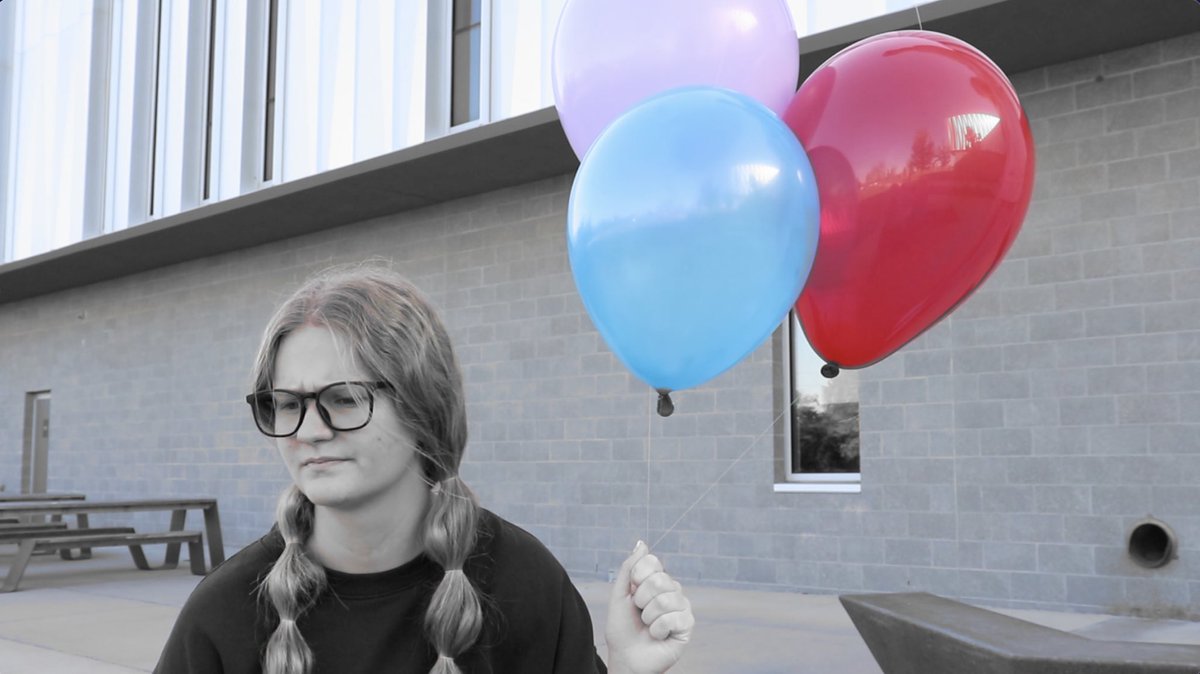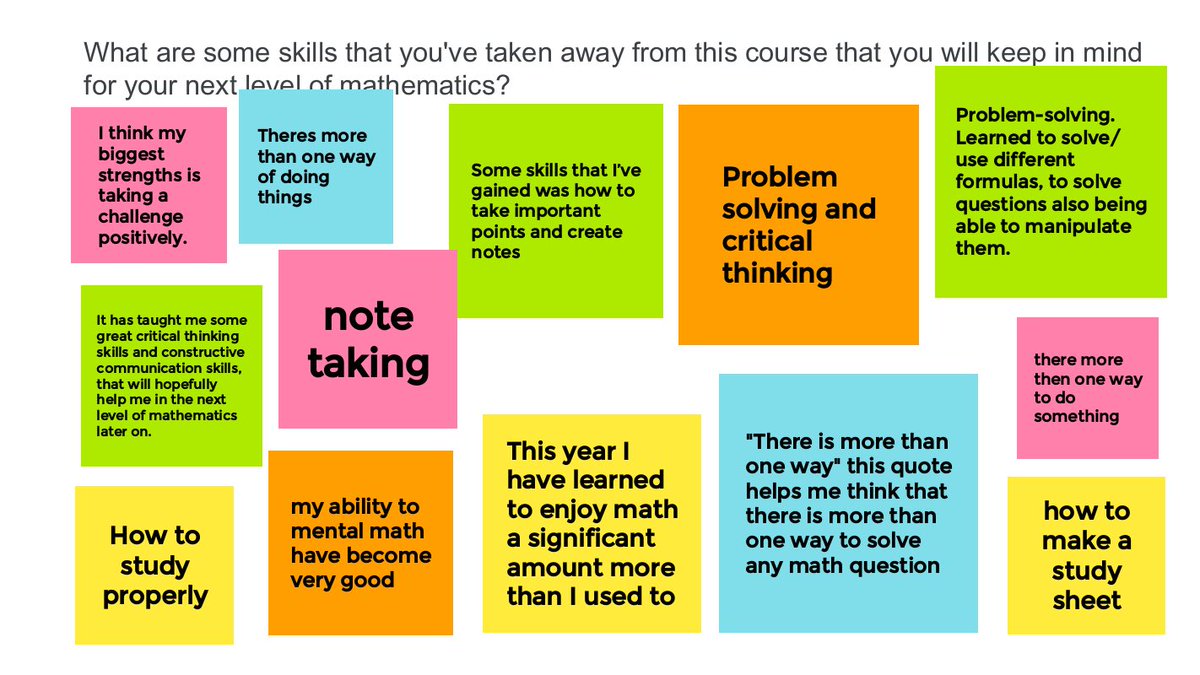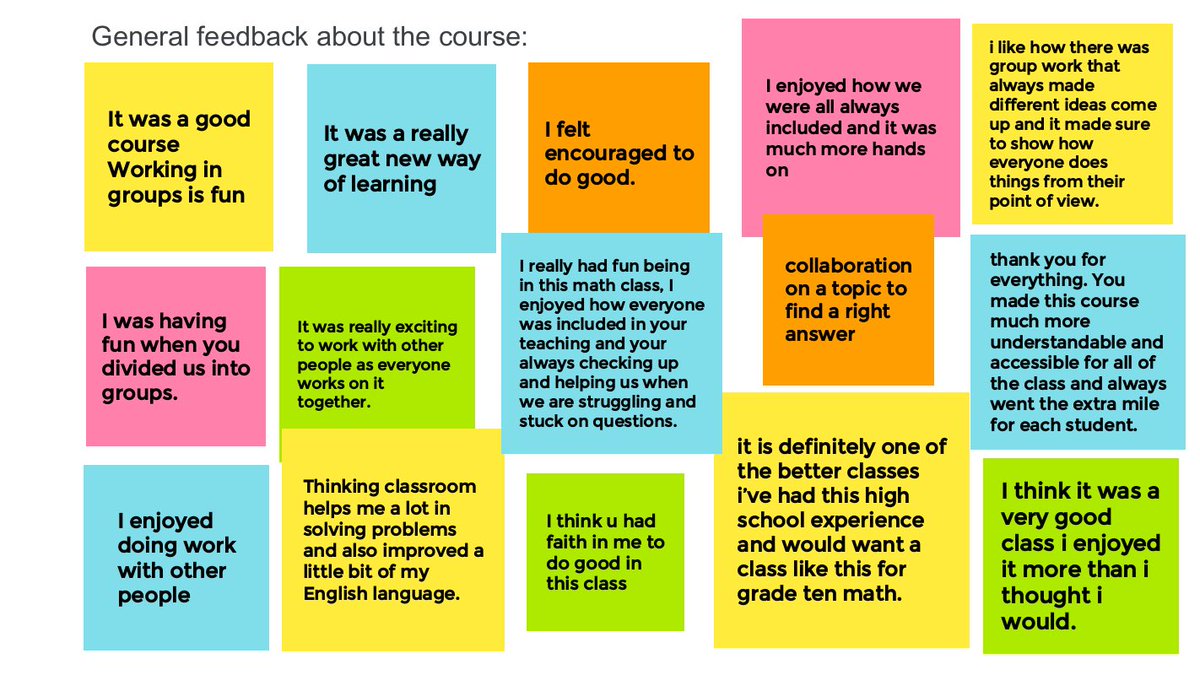Discover and read the best of Twitter Threads about #ungrading
Most recents (24)
I’ve heard two general concerns about ungrading and neurodivergent students. First, that many neurodivergents need structure even more than other students. 2/n
I think this is based on the false idea that ungraded classes are less structured. In reality, how a class is graded (or not) and degree of structure are two separate design elements. Ungraded does NOT mean unstructured. 3/n
Ungrading isn’t a word for all alternative grading practices. It’s a set of conversations (drawing together teachers and students) that push against and ask hard questions of grading and standardized/quantitative assessment. There are lots of entry points to those conversations.
The word “Ungrading” has use value right now, which is why I’ve used it and why I’ve worked to catalyze conversations about #ungrading. But the conversations aren’t new. We have to look back in order to look forward.
The first step toward #ungrading is a series of conversations about the failures of standardized assessment, the harm letter grades do to already marginalized students, and the harm they do to relationships between teachers, between students, and between teachers and students.
Last night, a professor walked into a night class for the first time since 2016. Here's what happened:
I was teaching at another campus -- not my primary employer -- after their night class professor couldn't teach this semester. I'd previously taught at this institution and was thrilled to have the chance to have a night class once more, because I LOVE TEACHING THEM.
Registration numbers fluctuate a lot in the first days of a semester, but this class has about 40 students. A mix of majors and non-majors. Age range is 17-42. Some athletes, a few gamers, lots of "typical" (whatever that means) residential college students.
How I explain #ungrading and my reasoning on my #RWUCancerBio syllabus, a 🧵:
For this course, I am using a philosophy of assessment called “ungrading” where there are no marks (numbers or letters) on individual assignments.
For this course, I am using a philosophy of assessment called “ungrading” where there are no marks (numbers or letters) on individual assignments.
However, I will give you specific feedback so that you know what’s going well and what could use improvement!
Why no grades? Here are some of my reasons:
Why no grades? Here are some of my reasons:
•Grades create a perverse incentive. My goal in this course is for you to engaged in authentic learning driven by your own curiosity rather than by the desire for a certain grade.
This 🧵is for me. This 🧵is for me when I need a dose of self-care, when I feel overwhelmed that I don't have the answers about student motivation, or when I can't see the good that I'm doing. This 🧵 is about my students' final self-assessments in an #ungrading comp course. 1/
“Ungrading is a philosophy and not a practice, one bent on turning the tables in the classroom so that students can intervene in their own education.”
This from @slamteacher is one of the most lucid pieces I’ve read about #ungrading. timeshighereducation.com/campus/problem…
This from @slamteacher is one of the most lucid pieces I’ve read about #ungrading. timeshighereducation.com/campus/problem…
As @slamteacher points out, ungrading is not a “plug-and-play best practice.”
Nodding to Paulo Freire’s notion of the “student-teacher”, @slamteacher writes, “Ungrading is about rearranging the room, placing the teacher among the students and requiring steady engagement with one another. Teachers and students share both roles; they should learn together.”
Ever wonder what it would look like if students had control of their own learning? What would happen if students worked on personal projects with no grades?
What if you built a class around personalized, competency-based, #ungraded, #realworldlearning? It looks like this 🧵
What if you built a class around personalized, competency-based, #ungraded, #realworldlearning? It looks like this 🧵

Can someone, in a single tweet, please define what #ungrading is? Even better if you can state how it’s different to assessment for learning.
Huge thanks to everyone who replied here. A helpful and diverse set of responses. The big takeaway for me is that ungrading is as much about the 'why' (the rationale for ungrading) as the 'what' (the specific practices).
There's a lot of overlap in the 'what' between ungrading and assessment for learning - but it's heartening to see a new enthusiasm and justification for these practices
SERIOUS request to fellow ungraders: a young colleague at another uni is getting pushback from chair about #ungrading. Can you please reply with your favorite evidence of ungrading’s efficacy in terms of content learning as well as other benefits?
I know we have all faced those skeptical colleagues. Please help a budding superstar who is trying to do the right thing. #ungrading
*This colleague has given permission for me to make this appeal.
Philosophy is a love of wisdom, which cannot be quantified by grading rubrics or systematized by learning outcomes. Why are philosophy professors addicted to academic metrics that commodify learning? (A thread on #ungrading).
@Jessifer says that "grades (and institutional rankings) are currency for a capitalist system that reduces teaching and learning to a mere transaction. Grading is a massive co-ordinated effort to take humans out of the educational process"...
@Jessifer also says that learning outcomes presuppose what is to be determined in the course of collaborative inquiry, & should be replaced by "emergent outcomes" that "are co-created by teachers and students and revised on the fly"...
I am deeply grateful to have this tangled tale published by @PetarPjandric & @SpringerEdu: “Rewild my heart with pedagogies of love, kindness and the sun and moon” - doi.org/10.1007/s42438…
1/ 🧵
1/ 🧵
The pressing problems we face from wars to pandemics erupt against the less dramatic background of the mundane continued destruction of our planet as a habitable realm.
2/
2/
All the while “EdTech solutionism” creates new problems as fast as it fixes old ones. Something in the urgency of the fix may be part of the problem. Are we too desperate to fill a hole in the world that we only see through a hole in ourselves?
3/
3/
I revamped my pedagogy and tried #ungrading for the first time this semester. I have thoughts! A🧵:
Some context: this was for a general education course at Notre Dame, designed to fulfill the literature and writing requirements for nonmajors at a variety of levels. We read four canonical texts, focusing on lit analysis and public writing rather than academic essays.
Students submitted informal writing regularly, along with two major public writing projects. They could revise their projects based on my feedback as many times as they wanted, with the expectation that they would complete at least one revision for a final project.
Now that my final grades are submitted, I've had a chance to reflect on using #ungrading in my 400-level seminar this semester. It was a huge success so I wanted to share what I did for those interested. A 🧵
1/First, I gave students the option of choosing an ungrading format for the semester or standard grading. 22 out of 26 students chose ungrading. Many commented they were nervous at first but trusted me that it was the best decision (trust is KEY with ungrading).
2/Assessment took the form of a multi-step research assignment that was scaffolded across the semester: primary/secondary source analysis; proposal; draft of project; final revised version. Students could choose btw. a research essay and a creative project.
Finished this semester’s midterm portfolio interviews! I have a skills-based #ungrading gr 11/12 Physics classroom. This means that nothing has a grade on it. Ss look at their learning from the perspective of developing skills @TG2Chat #assessment #iteachphysics
1/15
1/15
@TG2Chat When we do need a grade, like now for midterm reports, its based on these skills and in consultation with Ss. Every chapter is seen as a re-test of these skills with different content. We also do weekly “check-ins” instead of tests to assess skills
2/15
2/15
I wasn't sure how #ungrading would go in #MCV4U, but at the halfway mark, it has been a rousing success. Here's what's working, how it happened and what's next! #thinkingclassroom #mtbos #udl #assessment #evaluation 1/13
1. It started w clear communication to families. A lot of the fear around going #markless is the fear of the unknown. Ss wonder "How will I get a mark?" & "How will I know how I'm doing?," & parents worry "Will my child get the marks they need to get into post-secondary?" 2/13 

A lot of these worries are grounded in the belief that Ss are competing amongst and against each other to earn grades. The whole notion of "earning grades" speaks to a deeper problem, but our focus is on learning. When Ss learn, they will excel & they will achieve! 3/13
So I'm taking some coding courses to expand my skills and passions and it's making me think a lot about how we approach grades in traditional classrooms. As I learn this new skill myself, my instructors are super supportive and allow me to resubmit as I learn. /1
I'm building a skill that takes time and practice to learn and I'm not penalized for mistakes that I make early on in my learning journey. I can go back and fix those mistakes as I learn. /2
As a science educator in the K-12 space, I've seen a lot of examples of expectations put onto students that they can master a skill after only practicing it once. And they are evaluated on it and that grade is incorporated into their average for the course. /3
I’ve been tinkering with the relationship between #Ungrading, pedagogic ego, and student dependence. And bodies, of course, which are never far from my thinking.
Just rolling it all around a bit. 🧵
1/
Just rolling it all around a bit. 🧵
1/
Grades infantilize. They keep students dependent on us to assess *for them—stunting their potential maturation.
Students remain immature/dependent in top-down grading paradigms because we need them to. Their dependence satisfies our pedagogic ego. It benefits and centers us.
2/
Students remain immature/dependent in top-down grading paradigms because we need them to. Their dependence satisfies our pedagogic ego. It benefits and centers us.
2/
When we build paradigms to satisfy our need to be depended upon as sole arbiters, students who take unsanctioned autonomy in those spaces feel like a threat.
Their attempts to assert agency feel like a personal affront.
3/
Their attempts to assert agency feel like a personal affront.
3/
#OntEd MTH1W: End of Term reflections always give me great insight into what students valued and took away from the course. The benefits of de-streaming, thinking classroom and accommodations for all is very evident in their responses. 







some takeaways:
collaboration & community
check your understanding
math confidence
math is fun 🤩
more than one way of solving a problem
note-taking skills
critical thinking, problem solving
develop a sense of trust, inclusion and see the potential in all students
collaboration & community
check your understanding
math confidence
math is fun 🤩
more than one way of solving a problem
note-taking skills
critical thinking, problem solving
develop a sense of trust, inclusion and see the potential in all students
BEFORE MTH1W: I was nervous b/c I had only taught Academic/U-level courses. I was worried about how I would be able to reach all types of learners.
#Ungrading is part of a love ethic.
When the grade is no longer the focus, our day-to-day interactions with students change. Our process of working with them takes a completely different tone and tenor. We evaluate, yes, but as part of the process.
1/
When the grade is no longer the focus, our day-to-day interactions with students change. Our process of working with them takes a completely different tone and tenor. We evaluate, yes, but as part of the process.
1/
Our responsibility is to seek understanding first. To try to understand their work *from their perspective* as much as possible.
This applies to anything we evaluate: student work, faculty dossiers, manuscripts for peer-review, etc.
2/
This applies to anything we evaluate: student work, faculty dossiers, manuscripts for peer-review, etc.
2/
If we can ask them about it directly, as we often can with students, we should.
In earnest, open-ended, without snark or sarcasm or irony:
“What are you trying to do here?”
“Why did you make this choice?”
“How are you approaching this?”
3/
In earnest, open-ended, without snark or sarcasm or irony:
“What are you trying to do here?”
“Why did you make this choice?”
“How are you approaching this?”
3/
First day of S&P is on the books! Today involved telling students how assessments work, so now seems like a good time to share my (new) approach for this term. The TL;DR version: We're not doing points. Points annoy everyone and this ain't Hogwarts. Read on for more. <1/n>
First, a word about #ungrading. I REALLY want to like ungrading. I have colleagues who are strong advocates for it and I've seen success stories here and elsewhere about it. I also had a terrible go at trying it in a much smaller class last year - just didn't work at all. <2/n>
Honestly that experience got me pretty low about teaching - about the worst I've felt about it during my career. BUT, I still wanted to try and break the points-based mentality a lot of our students have. So: a compromise. <3/n>
Hey all, here is my report (THREAD) about my first #Ungrading semester, part 2 (pt. 1 can be found here: threadreaderapp.com/thread/1449462…) #ContractGrading #Pedagogy #DigPed #AcademicChatter #AcademicTwitter 1/
The biggest takeaway from this semester how easy it felt. Not ease of work--there was work, but how it helped conversations about student writing, which is literally my job, easier. #Ungrading #AcademicTwitter 2/
Here’s how it worked! Materials: my 1101 syllabus, project rubric, semester “snapshot” template, portfolio assign. sheet, class grade agreement, & list of grade items is here: tinyurl.com/weaverungrade . #Ungrading #AcademicChatter #WritingTeaching 3/
To those who would suggest that #Ungrading and other non-punitive policies don’t adequately prepare students for a profession/career: a thread.
+
+
Any early-career professional will know precisely when/how to fall in line if needed because the system of education has raised them to uncritically follow rules and directives, or else be penalized. The threat alone produces the desired behavior. +
What too many young professionals are missing is the ability to *participate* in a field; to wield agency; to understand a system & decide how to engage.
(Those are the folx I want to work with—the creatives, the curious. The “difficult” who challenge oppressive systems.) +
(Those are the folx I want to work with—the creatives, the curious. The “difficult” who challenge oppressive systems.) +
Reducing the need for accommodations should always be a goal of educators. It might prove impossible to completely remove the need for all accommodations, but there is A LOT more most of us can do, and Twitter is an easy place to start. (1/4)
#AcademicTwitter #HigherEd
#AcademicTwitter #HigherEd
If you're an instructor or staff member in #HigherEd or are significantly involved with students and their education, there are a number of hashtags you can follow to keep track of ways to be accessible, inclusive, and informed (please add more!): (2/4)
For universal design for learning, there's #UDL and #UDLHE. There's the #UDLChat, there's #LectureBreakers podcast.
(3/4)
(3/4)
UNGRADING report! Halfway through my first ungraded semester (comp 1) and I find I’m saying the same things when people ask how it’s going: 1/18 #Ungrading #ContractGrading #Pedagogy #DigPed #AcademicChatter #AcademicTwitter
My students report feeling “relieved” they don’t have to worry about grades, and I feel relieved, too: as I mentioned to a colleague, I feel more “settled in my soul” about how much freer I am to focus on giving constructive feedback. 2/18
Responding to work has been easier and quicker-- in the past, a not insignificant amount of time was given over to dithering abt letters and numbers (is this an A? Is this a B?--Thank god we don’t have pluses and minuses). 3/18






